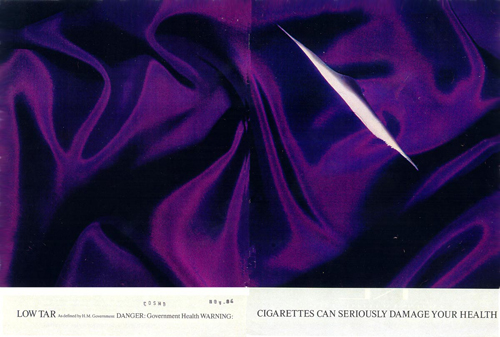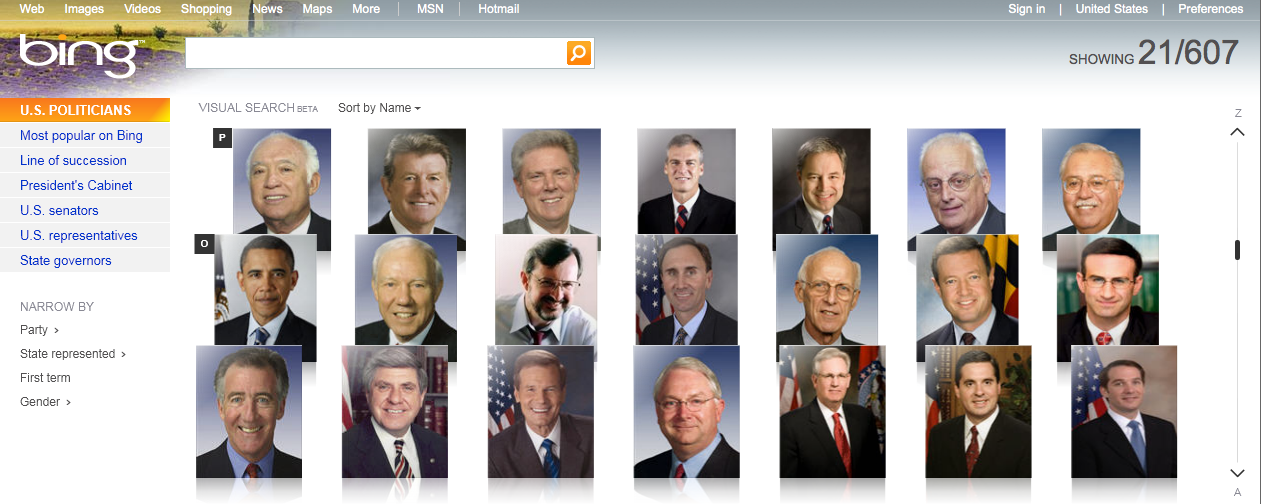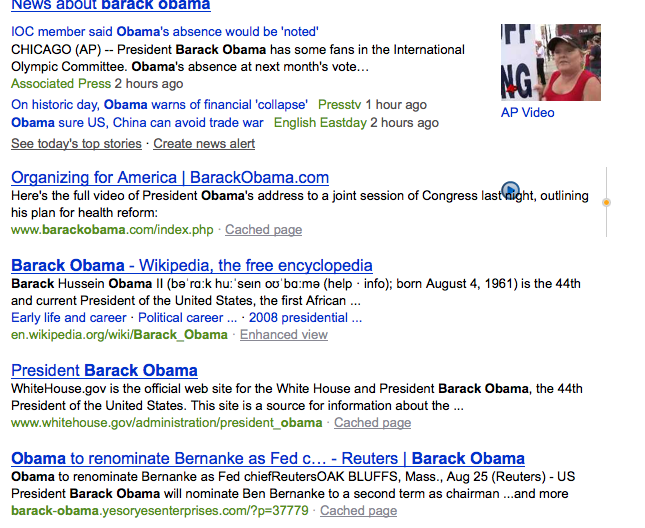A Better Stimulus Plan: Drug Dollar Amnesty
Now that Fortune, Time, NPR, and New York Magazine are all talking up marijuana, it’s time to answer the eternal question: why are illegal drugs recession-proof? The answer isn’t just physiology (since marijuana is not physically addictive, any argument about inelastic demand is going to have to hold true for, say, Starbucks or Hagen-Dasz).
09.22.09Paul Arden’s Surprisingly Thoughtful Motivational Tract

It’s Not How Good You Are, Its How Good You Want to Be is another title that most people would naturally tune out (especially if they’d actually enjoy the book).
Arden’s book is short and tightly edited. The features big text, lots of whitespace, sudden pictures, emphatic headlines—it’s like a really, really good Tumblr.
09.21.09Hugh MacLeod’s “Ignore Everybody”: How to Be More Creative Than Necessary
Ignore Everybody is Hugh MacLeod’s manual about staying sane while you do stuff you don’t really love, and trying to figure out what it is that you do love. MacLeod wrote the book in New York (of course) where he worked in advertising (of course!) until he was successful enough to stop. He also made comics.
| Posted in books | 1 Comment »
Swagapalooza is the Next Big Thing in PR: An Audience of Dozens With an Audience of Millions
I just got back from Alex Krupp’s inaugural Swagapalooza. Swagapalooza is a little like the movie theater, or the compact car: it’s what you get when a recession forces people to be creative about what they don’t do.
Here’s what Swagapalooza didn’t do:
| Posted in pr | 1 Comment »
Reddit.com is the Future of News (And Not for the Reasons You’d Think!)
A week ago, I wrote an article about a fairly low-level SEO technique. As an experiment, I posted it to the SEO section of reddit.com. I was startled by what I learned. Even though I’ve been using reddit since a few months after it started, I didn’t realize until now why the site is like no other—how it encourages the best behavior from people who do their marketing through the site, and how it represents the real future of news.
09.16.09Facebook is Profitable. Again.
Facebook just announced that they are, more or less, profitable. Money coming in exceeds money going out. This is not the first time: in a 2005 interview, Mark Zuckerberg discusses how the company made a profit before they decided to focus on growth.
09.15.09Bing Visual Search is not a Revolution—It’s a Coup
“Why type when you can see it?”
Because I’m probably not a genius, and I’m definitely not a moron.
Bing’s visual search is doesn’t do anything useful. It doesn’t make your searches any easier, and it certainly doesn’t make it faster. It adds a layer of visual appeal, but even that appeal isn’t so appealing. For example, try searching for Obama in the list of US politicians, which they suggest as a good search. Here’s what I see:
(Click for a larger image)
Compare that to the normal Bing search results:
09.14.09Direct Marketing Gave Myspace Something No Other Social Network Had
You’ve probably passed Stealing MySpace in the bookstore a dozen times. Every time, you probably glanced at the title and moved on.
Which is too bad; it’s a terrible title for a terribly interesting book. Essentially, Tom Anderson and his merry band of spyware masters were able to build a site that, until quite recently, was the largest and most successful social network. They didn’t have a vision, they didn’t have any expertise, and one of their most compelling features started out as an unexpected accident.
Myspace had one huge advantage, though: while it’s founders weren’t spammers, they were about as close as you can get. Before Myspace, they pushed hidden cameras, ebooks on dating, and lots and lots of spyware. Myspace itself might have been an attempt to go legit, but it might well have been a campaign to harvest new emAil addresses that somehow got out of hand. Whatever the reason, Myspace’s direct marketing heritage made it a social site like no other.
09.11.09The Typo Test: Do Typos Ruin Online Copy? I’m Going to Find Out
There are two Typo Instincts.
On the one hand: Who cares about a single typo? If someone can’t spell (or run spellcheck), does that really mean they can’t do their job?
On the other hand: Who wants to work with someone who can’t even bother double-checking their first impressions?
I don’t know for sure if typos ruin online sales pitches, but I have a theory, and I’m going to test it.
09.10.09How to Write a Top-N List (If You Must)
Paul Graham has some not-especially-kind things to say about the list of n things. Read his essay, and the next time you encounter a top-n list, you’ll have a bad taste in your mouth.
But it’s been a few days since that article came out, and if you read it then, you’ve noticed by now—for a “degenerate case of essay,” they’re pretty popular among readers and writers.
They’re popular because they work. And here’s how to make them work best. Read the rest of this entry »




| Posted in economics | No Comments »